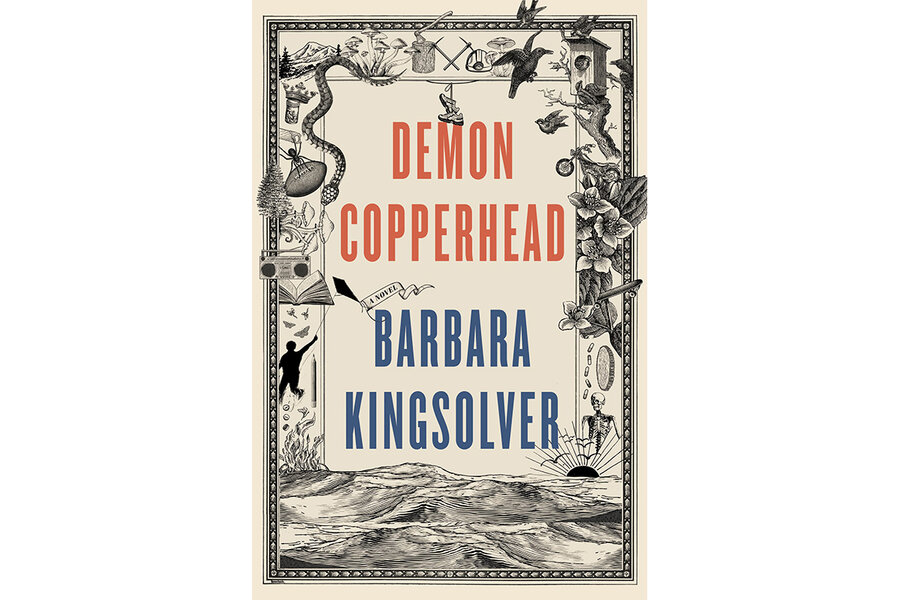Note: If you wish to receive, via e-mail, (1) my weekly newsletter or (2) daily copies of these posts, write to me at rrbates1951@gmail.com. Comments may also be sent to this address. I promise not to share your e-mail with anyone. To unsubscribe, write here as well.
Monday
Here’s a tidbit of literary history I’ve just picked up. Apparently Barbara Kingsolver’s Pulitzer-Prize winning novel Demon Copperhead is in part a response to J. D. Vance’s Hillbilly Elegy. Asked about Vance’s book in an interview with The Guardian, Kingsolver said,
I can tell you that Appalachian people felt betrayed by that book a long time before he became a Republican politician. I’ll begin by saying: anyone is entitled to write a memoir. That’s his story, fine. But for him to say that his story explains all of us – I say, no, I resent that, because it’s very condescending. There’s this subtext all the way through it that suggests we’re in a boat that’s sinking because we’re lazy, unambitious and uncreative, which I resent.
Kingsolver knows whereof she speaks, having been raised in Appalachia herself. If Hillbilly Elegy was well received, she believes, it’s because “it simply confirmed well-worn stereotypes”:
I’ve dealt with this condescension, this anti-hillbilly bigotry for a lot of my life I didn’t realize it was a problem until I left Kentucky and went to [Indiana’s Depauw University] and people made fun of my accent, and said things like: ‘Look at you, you’re wearing shoes, ha ha!’” [Pause] “You know, it’s more insidious than that. Even as a writer, I feel like my whole life until Demon Copperhead I was snubbed because I’m rural, I’m from this place that’s considered backward. I’m quite used to it. But [Vance’s book] really made a lot of us angry that this became the explanation for us.”
She adds that her neighbors saw through Vance immediately: “The hollowness, the fact that he isn’t really one of us.” In his book, she says, “There was no analysis, and no compassion. It was just: if I can survive, anyone can survive.”
And indeed, Vance was not “one of us.” According to Professor Lennard J. Davis, Vances engages in “poornography,” which is writers who are not poor themselves conducting literary sightseeing tours through poverty:
Vance himself was never actually impoverished. His family never had to worry about money; his grandfather, grandmother and mother all had houses in a suburban neighborhood in Middletown, Ohio. He admits that his grandfather “owned stock in Armco and had a lucrative pension.”
Davis points out that Vance introduced himself at Yale as “a conservative hillbilly from Appalachia,” and then used his mother’s addiction to painkillers to cement his credentials. As Davis puts it, “In the book, Vance searches for an explanation for his traumatic relationship with his mother, before hitting on the perfect explanation: His mother’s addiction was a consequence of the fact that her parents were “hillbillies.”
One gets a far deeper grasp of the culture by reading Prodigal Summer, Flight Behavior, and Demon Copperhead, all of which are set in Appalachia and the last of which does a deep dive into the problem of opioids. There the protagonist, after being bounced from one abusive foster home to another, finally finds (he thinks) stability in the home of a football coach, who sees his potential—but who then introduces him to painkillers after an injury threatens to sideline him. From there he is plunged into the netherworld of addiction and barely manages to escape. He does so, not by pulling himself up by his bootstraps, as Vance recommends, but through the support of others. Demon gets his life back in order after attending a rehab center, where he draws on his artistic skills to write a graphic novel about the history of the Appalachian people.
I’ve taught Prodigal Summer and Flight Behavior as well as The Bean Trees and all refute Vance’s characterization of people as shiftless and looking for a government handout. Although having said that, I can think of one character in Flight Behavior who does get handouts, even as he trashes the federal government. “Who do you think sends you your disability checks,” the sassy narrator shoots back at him after one of his anti-government rants. “Santa Claus?”
Tellingly, this character sounds like J.D. Vance, who in fact has had his own Santa Claus: rightwing billionaire Peter Thiel set him up as a venture capitalist and then financed his senate campaign. His hillbilly act is just a grift.
Read Kingsolver if you want the genuine article.
Relevant passage from Demon Copperhead: I imagine Kingsolver directing the following Demon observation to Vance’s putdown of hillbillies:
There’s this thing that happens, let’s say at school where a bunch of guys are in the bathroom, at the urinal, laughing about some dork that made an anus of himself in gym. You’re all basically nice guys, right? You know right from wrong, and would not in a million years be brutal to the poor guy’s face. And then it happens: the dork was in the shitter. He comes out of the stall with this look. He heard everything. And you realize you’re not really that nice of a guy. This is what I would say if I could, to all smart people of the world with their dumb hillbilly jokes: We are right here in the stall. We can actually hear you.”


